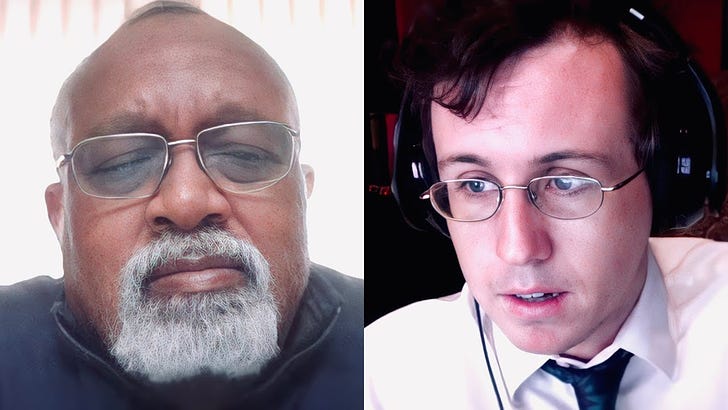Recently, I recorded a conversation with Nathan J. Robinson, editor of the magazine Current Affairs and an avowed man of the left. The stated occasion was the recent reissuing of my book, The Anatomy of Racial Inequality, which was originally published in 2002. But our conversation takes in some of the most pressing issues of our own time. Nathan is a close, careful reader, and he’s not afraid to deal with the arguments of his more conservative opponents in a direct and intellectually honest way. In fact, he seems to relish it! In other words, this was a substantive, occasionally intense debate, but an entirely respectful one.
It turns out we had so much to talk about that our conversation continued over email. One of the things that Nathan wanted to address were the differences between the analyses I put forward in Anatomy and Race, Incarceration, and American Values and my more recent skepticism toward systemic racism. In other words, what do the Old Glenn and the New Glenn have to say to each other? This is a question I’ve been thinking about a lot lately, and I hope to make this post the first in a series of “conversations” between the positions I began staking out in the mid-90s and those I began elaborating in the 2010s and ‘20s.
Below you’ll find my conversation with Nathan and our subsequent email exchange. Nathan really pushes me to think deeply about my own work, and I think you’ll find his comments provocative—some of you may find more common ground with him than you expect. In order to access the entire post, though, you’ll have to be a paid subscriber. So, if you haven’t already, please consider coming aboard!
Dear Glenn,
Okay, sorry, I need to ask you one thing, though, because I found your explanation reconciling the book and the testimony satisfying during our conversation, but now I'm reading this 2012 lecture and I just cannot find a way to reconcile in my head the argument from the testimony that mass incarceration is not racist but a result of Black law-breaking driven by “despicable behavior” and the argument you made in 2012 that mass incarceration is clearly racist and that the critic who sees disparate crime rates as proof the system isn’t racist is “ahistorical, shortsighted, and ethically challenged” because they're focusing on individual/community responsibility rather than social responsibility, history, and public policy.
Likewise with “I do deny the causal social-historical connection between the fact of slavery and Jim Crow on the one hand and the plight of contemporary African-American communities on the other” (Vox interview) and “much rests on my conviction that the history of slavery in America casts a long shadow, one with contemporary relevance… I claim that an honest assessment of current American politics—its debates about welfare, crime, schools, jobs, taxes, housing, test scores, diversity, urban policy, and much more—reveals the lingering effects of this historically engendered dishonor” (Anatomy).
I don't think these are completely, wildly apart. As we talked about, a lot of it just depends on whether you decide to emphasize structure or agency, each being part of the story. But here's why I press you on this: I feel as if in your recent public speeches on this you lapse into the very kind of binary thinking that you've done such an elegant job getting us around in the earlier work. Like today you declared yourself to be on the culture side of things. I understand why you would choose to do this; as you say in the Vox interview, it's a “bleak moral landscape” if human choices don't matter and we're billiard balls pushed around by historical forces. What I would object to is the attack on the systemic racism explanation of mass incarceration. I think it's fair to say that that explanation is true but incomplete, but unfair to go before Senate Republicans and encourage them to think of it as absurd. I think your 2012 lecture is completely correct, and while it's perfectly reasonable to place different emphases for different audiences, I think that saying it's ridiculous or foolish to place the emphasis on law/history/society/economics rather than “despicable behavior” is exactly the kind of un-nuanced thinking that the 2012 lecture warned about.
Keep reading with a 7-day free trial
Subscribe to Glenn Loury to keep reading this post and get 7 days of free access to the full post archives.




